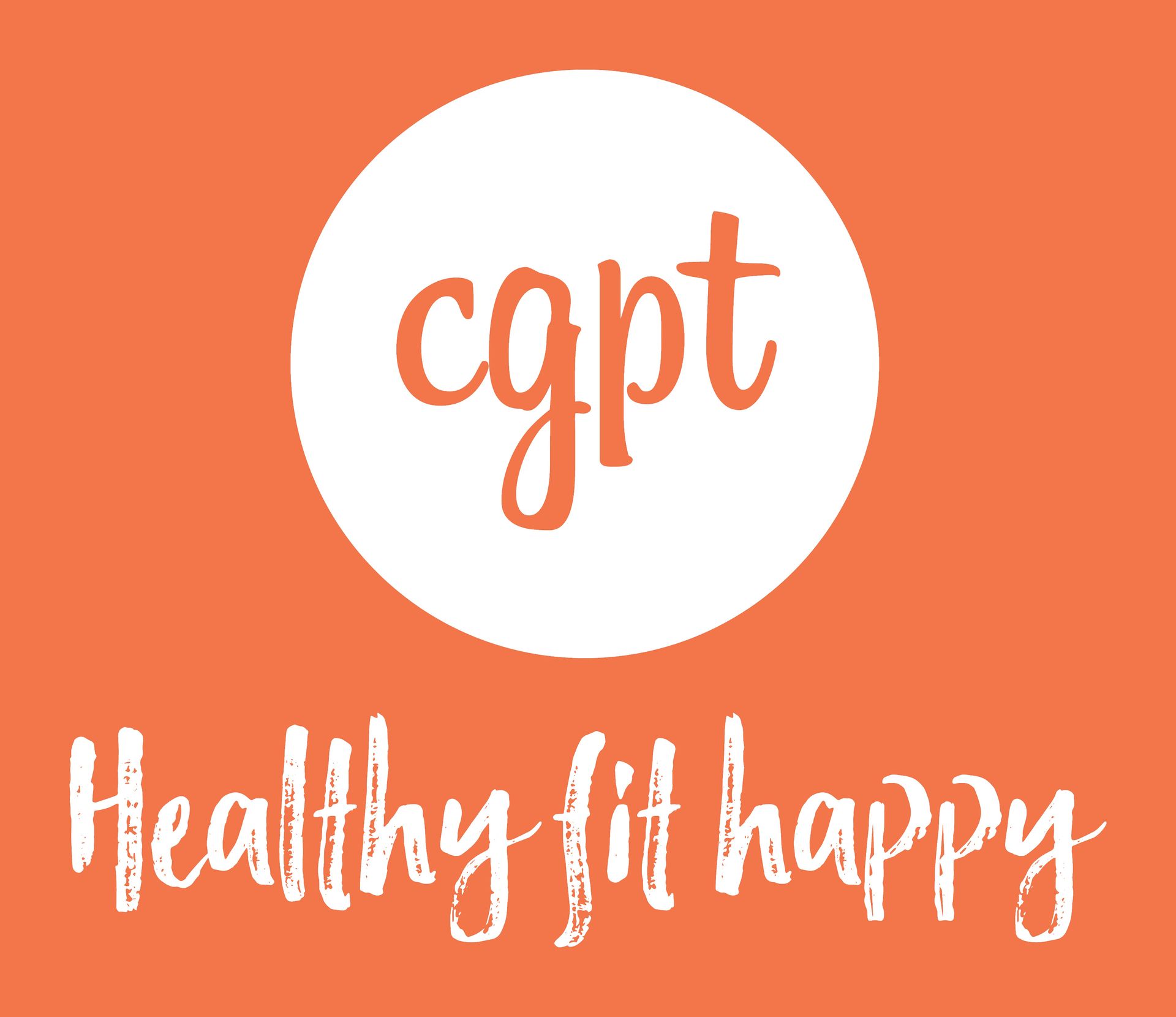The Surprising Link Between Muscle and Mental Health: How Strength Training Supports Anxiety and Depression
The Surprising Link Between Muscle and Mental Health: How Strength Training Supports Anxiety and Depression
When most people think about strength training, they picture muscle gain, fat loss, and improved physical performance. But what many don’t realise is that lifting weights also offers one of the most powerful forms of therapy for the brain. For adults navigating stress, anxiety, depression, or burnout, strength training may be just as effective - if not more so - than traditional forms of mental health treatment. And the best part? The science is catching up fast.
At CGPT, we see it every day: clients leave sessions not only physically stronger but mentally clearer, more confident, and emotionally lighter. Let’s take a closer look at the compelling scientific evidence that connects muscle with mental health and why now might be the perfect time to start your own strength journey.
The Science Behind Strength Training and Mental Health
1. Weightlifting and Its Antidepressant Effects
A groundbreaking meta-analysis published in JAMA Psychiatry found that resistance training significantly reduced depressive symptoms across all age groups and genders - even in people who didn’t see any changes in their physical appearance. In fact, researchers concluded that the mental health benefits of resistance training were comparable to antidepressant medication or psychological therapy in some individuals [1].
Another Australian study led by Deakin University’s Food and Mood Centre supported this, showing that structured resistance training programs led to substantial reductions in symptoms of mild-to-moderate depression after just 8 weeks [2].
Why does this happen? Researchers suggest several mechanisms:
· Endorphin release (your natural “feel good” chemicals)
· Increased self-efficacy and body confidence
· Improved sleep and reduced fatigue
· Positive neural adaptations in mood-regulating areas of the brain
2. Resistance Training Helps Regulate Anxiety
It’s not just depression - strength training is emerging as a highly effective tool in managing anxiety. A 2021 review in Neuroscience and Biobehavioral Reviews found consistent evidence that strength training reduced symptoms of generalised anxiety disorder (GAD), panic attacks, and even social anxiety [3].
Strength training influences anxiety through:
· Regulation of cortisol levels (the body’s primary stress hormone)
· Enhancement of brain-derived neurotrophic factor (BDNF), which supports nerve function and mood stability
· Improved vagal tone, which activates the parasympathetic (rest and recover) nervous system
In plain terms? Lifting weights helps your nervous system stay calm and composed - even when life isn’t.
Why Strength Training Works Differently Than Cardio
While cardiovascular exercise is often touted as a “mental health booster,” strength training offers unique advantages. Unlike cardio, which primarily targets endurance, resistance training fosters a sense of mastery and visible progress - two key components for self-esteem and long-term resilience.
A University of Sydney study found that participants who performed strength training twice per week showed greater increases in self-worth and life satisfaction compared to those who did cardio alone [4].
The ability to progressively lift heavier weights creates a measurable feeling of accomplishment, which helps reframe negative self-talk and builds a more confident self-image.
Mental Health Is Physical Health
What makes strength training especially powerful is that it doesn’t isolate the brain from the body - it treats both at once. Here’s how regular resistance training impacts your overall wellbeing:
· Improved sleep quality, especially deep, restorative sleep
· Enhanced cognitive function and working memory
· Decreased inflammation, which is increasingly linked to depression and mood disorders
· Better insulin sensitivity and blood sugar regulation, which stabilises energy and mood swings
As the Australian & New Zealand Journal of Psychiatry highlights, inflammation and metabolic dysfunction are key biological drivers of depression so addressing them with movement, strength, and nutrition is essential [5].
Personal Training That Supports More Than Just Muscles
At CGPT in Hawthorn, we recognise that physical transformation is only half the story. Our trainers work with each client to build confidence, mental resilience, and a sense of achievement that carries into everyday life.
Andrea: The Grounded Guide
As the owner of CGPT, Andrea knows that long-term results come from consistency and trust. Her balanced and personal approach empowers women, particularly those navigating life transitions like menopause or new parenthood, to stay mentally and physically strong.
Tim: The Quiet Transformer
Tim’s detailed and adaptable training style has helped countless clients who "weren’t gym people" suddenly fall in love with strength training - and with themselves. His calm presence and strong communication skills create a safe space for progress.
Laurence: The Precision Pro
With a background in physiotherapy and years of technical experience, Laurence ensures that every movement is intentional and safe - especially for clients who may be recovering from mental or physical burnout.
James: The Encourager
James’ fun, reward-driven sessions are designed to bring joy back into movement. For clients dealing with stress or overwhelm, he’s a reminder that fitness doesn’t have to feel hard - it just has to feel good.
Sophie: The Rebuilder
Sophie’s patient and encouraging coaching helps clients reframe exercise as something to enjoy, not endure. Her focus on progress over perfection is especially powerful for those coming from a place of self-doubt or body dissatisfaction.
Jon: The Steady Anchor
Jon’s approach is positive, calm, and adaptable. His focus on making strength training feel welcoming means clients walk away feeling better mentally - every single time.
Mia: The Energy Shift
With a background in boxing and athletic performance, Mia’s sessions are high-energy and full of variety. But beneath the fun is a serious commitment to helping people feel emotionally strong, not just physically capable.
Adam: The Strategist
Adam’s training philosophy is intelligent, supportive, and deeply motivating. He’s a great fit for clients dealing with fatigue, overwork, or who need structure and accountability to stay on track.
The Power of Community in Mental Health
One of the often-overlooked benefits of strength training is community. Having a trainer who knows you, supports you, and believes in your progress can be transformational, especially when motivation or self-confidence is low.
The CGPT studio environment is designed to be welcoming, non-judgemental, and uplifting. Whether you’re walking through the door for the first time or returning after a tough season, you’ll be met with empathy, expertise, and a plan tailored just for you.
Getting Started: What to Expect
If anxiety, depression, or chronic stress has held you back from training in the past, we understand. That’s why our approach is different. We’ll meet you where you are - physically, emotionally, and mentally - and guide you forward with care and clarity.
A first session typically includes:
· A private one-on-one assessment
· Discussion around current lifestyle, stress, and goals
· Introductory movements to gauge strength and confidence
· A supportive plan that adapts as you grow
You won’t be asked to do anything you’re not ready for. There’s no judgement, no pressure, and no comparison - just progress at your pace.
Final Thoughts
In a world where mental health challenges are rising and traditional treatments often fall short, strength training offers a new - and incredibly effective - way forward.
Whether you're managing anxiety, overcoming depression, or simply feeling overwhelmed by life, resistance training could be your next best step. And at CGPT, you won’t be doing it alone.
Your strength journey starts here.
Ready to take the first step?
Join our community at CGPT and discover how strength training can shift not just your body but your entire outlook.
Check out our website at www.chrisgympt.com or contact Andrea directly at andrea@chrisgympt.com to book your first session.
Bibliography
1. Gordon, B. R. et al. (2018). "Resistance exercise training for anxiety and worry symptoms among young adults: A randomized controlled trial," JAMA Psychiatry.
2. Jacka, F. N. et al. (2019). "The SMILES trial: A randomised controlled trial of a dietary intervention for adults with major depression," BMC Medicine.
3. O’Connor, P. J. et al. (2021). "Exercise reduces anxiety and improves mental health: Systematic review," Neuroscience and Biobehavioral Reviews.
4. Rethorst, C. D. & Trivedi, M. H. (2013). "Evidence-based recommendations for the prescription of exercise for major depressive disorder," Journal of Psychiatric Practice.
5. Malhi, G. S. et al. (2015). "The clinical management of depression: An update," Australian & New Zealand Journal of Psychiatry.




